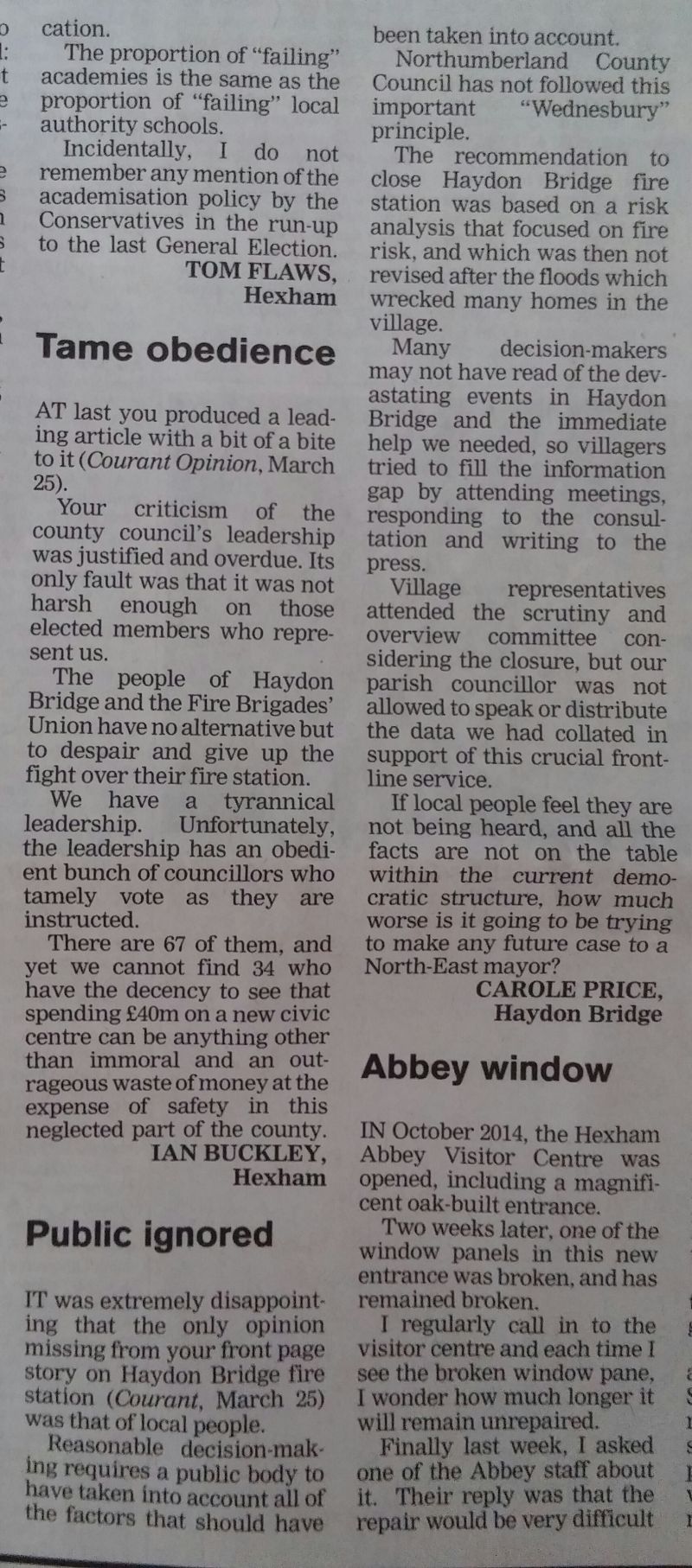Legal consciousness, and its close cousins ‘claim consciousness’ and ‘rights consciousness’, are concepts we hear a lot of in private law. That isn’t generally true of public law, however. Although legal consciousness sometimes intrudes into discussions of civil liberties, it doesn’t feature very much in discussions about the constitution (not after the 18th century, anyway). And I have never come across anyone invoking legal consciousness in the context of judicial review.
I’ve often thought that this is a regrettable omission, for there surely must be some form of demotic understanding of the legal constraints on administrative discretion (Lindsay Stirton and I make a related point in a paper forthcoming in Public Law). I was therefore both somewhat startled and somewhat pleased to discover clear empirical evidence this morning in (of all places) my local paper that there is, in fact, such a thing as legal consciousness of administrative law – specifically, of the Wednesbury principle. The document in question is the letter titled “Public ignored”.
 What I found particularly interesting was that the ‘demotic’ understanding of Wednesbury one sees in this letter is wrong as a matter of doctrine. To the extent Wednesbury speaks of the factors that were taken into account, it merely requires the decision maker to take into account all factors that he was bound in law to take into account (not all factors that he ‘should‘ have taken into account, which is an entirely different standard):
What I found particularly interesting was that the ‘demotic’ understanding of Wednesbury one sees in this letter is wrong as a matter of doctrine. To the extent Wednesbury speaks of the factors that were taken into account, it merely requires the decision maker to take into account all factors that he was bound in law to take into account (not all factors that he ‘should‘ have taken into account, which is an entirely different standard):
For instance, a person entrusted with a discretion must, so to speak, direct himself properly in law. He must call his own attention to the matters which he is bound to consider. He must exclude from his consideration matters which are irrelevant to what he has to consider. If he does not obey those rules, he may truly be said, and often is said, to be acting “unreasonably.”
And that, too, is precisely as theorists of legal consciousness predict.